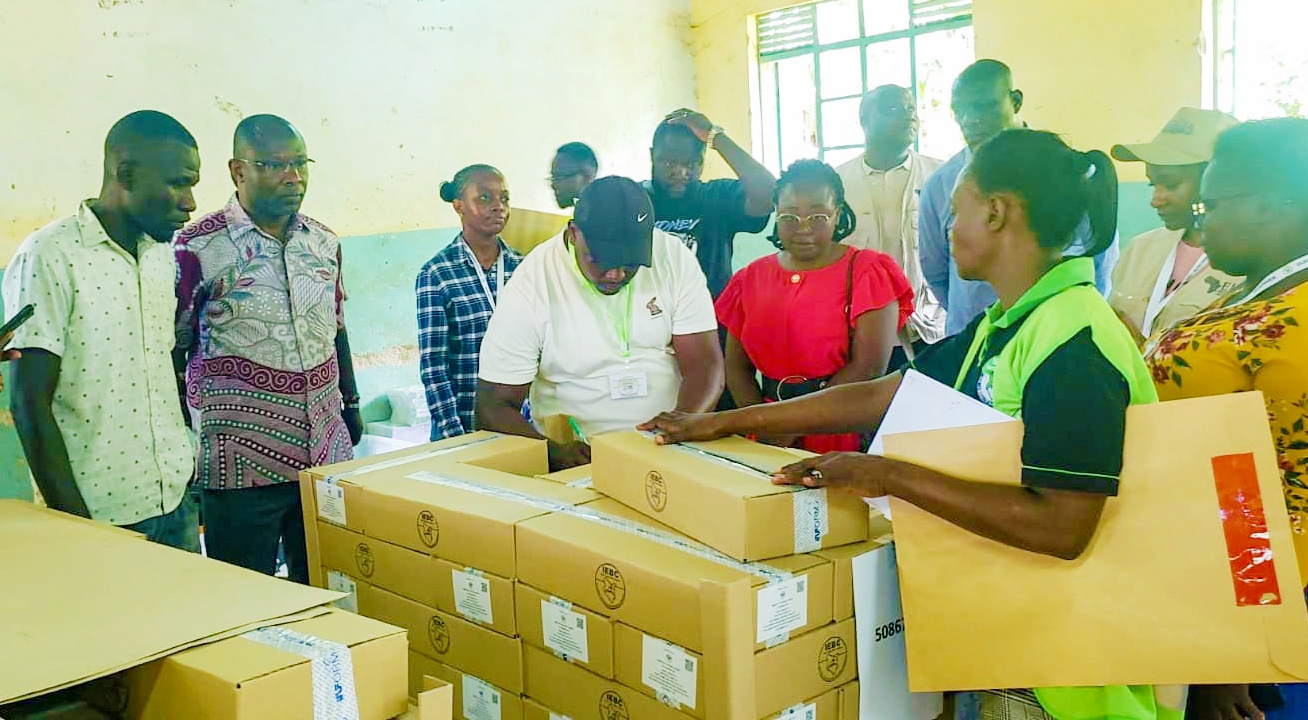Medics have warned of increasing eye illnesses in the country due to the effects of climate change.
Speaking during a free eye clinic in Nakuru on Thursday, the medics also linked pets and food to the trend.
“The public should consider going for routine eye check-ups once a year or after every six months to avoid dire situations, such as total blindness,” Dr Hilary Langat said.
He was accompanied by other experts, mainly opthamologists, in the session organised by Nakuru Lions Club in collaboration with Loresho SightFirst Eye Clinic.
Langat, an eye surgeon at Lions Club Eye Hospital in Nairobi, said Kenyans are used to over-the-counter medication for different ailments, including eye complications.
He warned the public against self-medicating for eye problems as it could cause blindness.
Most children diagnosed during the week-long free eye clinic suffered from allergies and refractive errors.
“There are also increasing cases of keratoconus among children and youth, which could lead to blindness if not diagnosed early,” Langat said.
“These issues sometimes require cornea tranplants to correct.”
There were also many cases of galucoma, which Langat termed a silent eyesight killer as it is painless.
Cataracts remains a challenge and is even being seen in children, the medic said.
He added that diabetes and hypertension are also causing eyesight complications, such as diabetic retinalpathy and hypertensive retinalpathy.
Nakuru Lions Club president Jagjeet Sagoo said the one-week free eye treatment for Nakru residents aimed to eradicate preventable blindness.
She said the need for eye-care in Nakuru and its environs is very high, yet there are very few facilities offering the service.
“By day five of the clinic, more than 3,500 people had been screened and 200 surgeries for cataract removal performed,” she said.
The camp started on Saturday last week, with teams screening patients from all 11 subcounties and transporting the patients who need surgery to Melvin Jones School in Nakuru Town East.
At the school, the two institutions have set up a temporary hospital complete with operation theatres and admission wards for patients who could not travel back home.
“The Lions Club of Nakuru is taking care of everything, including food, for free so that the beneficiaries leave the camp happy and they can celebrate the gift of sight,” she said.
Simon Njoroge, 1st vice district governor, said the Lions Club conducts such clinics in most counties once every month.
The ongoing one in Nakuru is unique because surgeries were not being referred to Nairobi, he said.
Besides the free eye care, The Lions Club also helps in feeding communities suffering from poverty and starvation and has a charity wing dealing with children with cancer and diabetes.
Shailesh Sheth, health coordinator of the Lions Club of Nakuru, said traditionally, the organisation screens eye patients and takes them to Nairobi for specialised treatment.
“This time, we changed the plan. The Loresho SightFirst team did the screening, while Lions Club conducted the surgeries at the temporary hospital,” he said.
Sheth said the club got all the necessary government permits to run the temporary hospital.
He said many people did not know there was pressure of the eye, which is completely different from the commonly known high blood pressure.
“We urge people to conduct routine eye check-ups because this phenomenon is silent and it might be too late for recovery by the time a patients realises,” he said.
He termed it unfortunate that children as young as four years of age were being diagnosed with cataracts, which is usually common among older people.
“All the children diagnosed with cataracts were referred to Nairobi because medics say they cannot be subjected to localised anaesthesia,” he said.
He urged other organisations, especially corporates, to join Lions Club whenever they were offering the free clinics because the demand for services is high.













